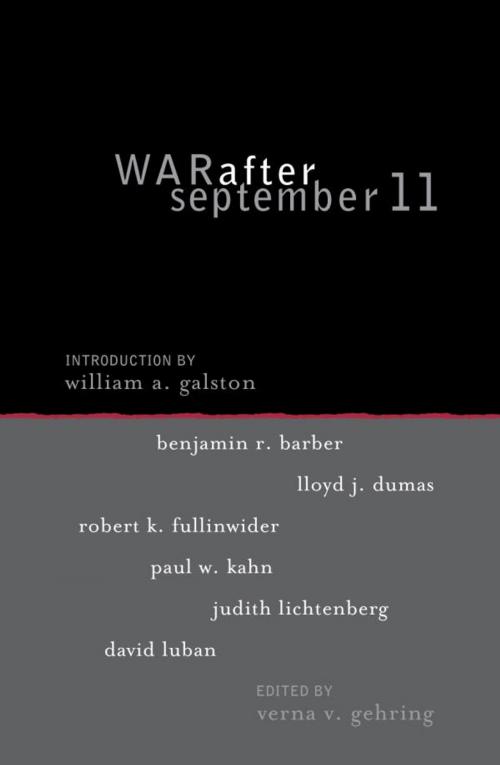War after September 11
Nonfiction, Religion & Spirituality, Philosophy, Ethics & Moral Philosophy, Social & Cultural Studies, Social Science| Author: | Benjamin R. Barber, Lloyd J. Dumas, Robert K. Fullinwider, Paul W. Kahn, Judith Lichtenberg, David Luban, William A. Galston, Senior Fellow | ISBN: | 9781461646815 |
| Publisher: | Rowman & Littlefield Publishers | Publication: | December 10, 2002 |
| Imprint: | Rowman & Littlefield Publishers | Language: | English |
| Author: | Benjamin R. Barber, Lloyd J. Dumas, Robert K. Fullinwider, Paul W. Kahn, Judith Lichtenberg, David Luban, William A. Galston, Senior Fellow |
| ISBN: | 9781461646815 |
| Publisher: | Rowman & Littlefield Publishers |
| Publication: | December 10, 2002 |
| Imprint: | Rowman & Littlefield Publishers |
| Language: | English |
What are the limits of justified retaliation against aggression? What actions are morally permissible in preventing future aggression? Against whom may retaliation be aimed? These questions have long been part of the debate over the ethics of warfare. They all took on new meaning after terrorists hijacked four U.S. airliners on September 11, 2001. War after September 11 considers the just aims and legitimate limits of the United States' response to the terrorist attacks. Six essayists from the Institute for Philosophy and Public Policy at the University of Maryland pair off to discuss ethical questions such as, What are the moral challenges posed by terrorism? Can modern terrorism be addressed within the existing paradigms of just war and international law? Should the U.S. respond militarily or by some other means? Taken together, the essays in this volume ask the fundamental question: How should the United States use its power to combat terrorism?
What are the limits of justified retaliation against aggression? What actions are morally permissible in preventing future aggression? Against whom may retaliation be aimed? These questions have long been part of the debate over the ethics of warfare. They all took on new meaning after terrorists hijacked four U.S. airliners on September 11, 2001. War after September 11 considers the just aims and legitimate limits of the United States' response to the terrorist attacks. Six essayists from the Institute for Philosophy and Public Policy at the University of Maryland pair off to discuss ethical questions such as, What are the moral challenges posed by terrorism? Can modern terrorism be addressed within the existing paradigms of just war and international law? Should the U.S. respond militarily or by some other means? Taken together, the essays in this volume ask the fundamental question: How should the United States use its power to combat terrorism?















